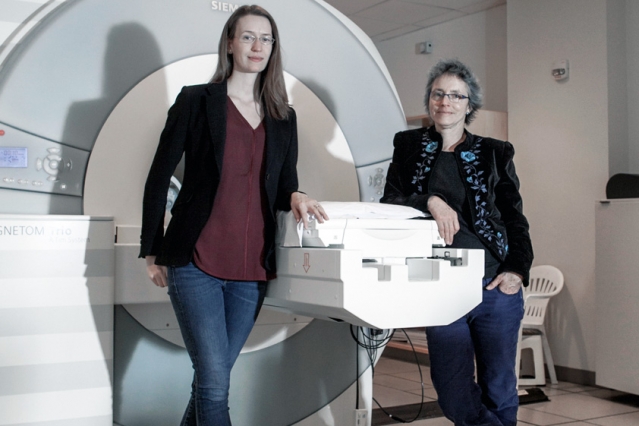
(Left to right) Caroline Robertson and Nancy Kanwisher |Photo: Sham Sthankiya
[Source: Anne Trafton | MIT News Office, December 17, 2015]
Neuroscientists link autism to reduced activity of key neurotransmitter in human brain.
MIT and Harvard University neuroscientists have found a link between a behavioral symptom of autism and reduced activity of a neurotransmitter whose job is to dampen neuron excitation. The findings suggest that drugs that boost the action of this neurotransmitter, known as GABA, may improve some of the symptoms of autism, the researchers say.
Brain activity is controlled by a constant interplay of inhibition and excitation, which is mediated by different neurotransmitters. GABA is one of the most important inhibitory neurotransmitters, and studies of animals with autism-like symptoms have found reduced GABA activity in the brain. However, until now, there has been no direct evidence for such a link in humans.
“This is the first connection in humans between a neurotransmitter in the brain and an autistic behavioral symptom,” says Caroline Robertson, a postdoc at MIT’s McGovern Institute for Brain Research and a junior fellow of the Harvard Society of Fellows. “It’s possible that increasing GABA would help to ameliorate some of the symptoms of autism, but more work needs to be done.”
Robertson is the lead author of the study, which appears in the Dec. 17 online edition ofCurrent Biology. The paper’s senior author is Nancy Kanwisher, the Walter A. Rosenblith Professor of Brain and Cognitive Sciences and a member of the McGovern Institute. Eva-Maria Ratai, an assistant professor of radiology at Massachusetts General Hospital, also contributed to the research.

